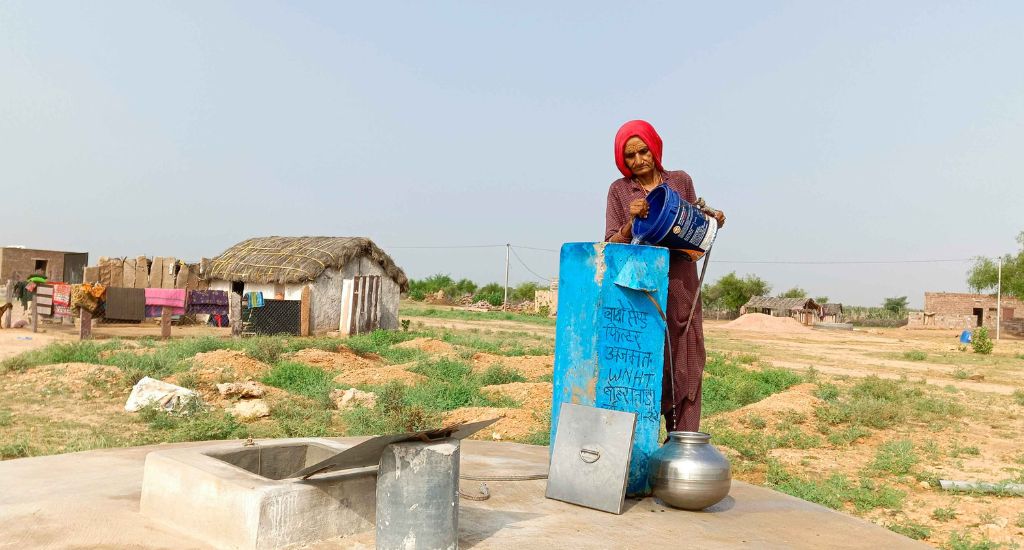
Parched Thar villages get safe drinking water
Simple bio sand filters make water safe for drinking in arid Rajasthan villages, preventing diseases and ensuring health of people.

Simple bio sand filters make water safe for drinking in arid Rajasthan villages, preventing diseases and ensuring health of people.
After covering miles of dry and desolate sands of the Thar desert in Rajasthan, an unexpected water reservoir appears as an ‘oasis’ from far. But on closer look you wonder whether the water is safe for human consumption.
Women of Bohranada village often talk about how they had to spend long hours fetching water from a pond located 3 km away for their drinking and other needs. Ajmat Khatoon, a local resident, says people in the area often fell ill due to consumption of contaminated water.
Water has always been a scarce resource for people in the villages in the Thar desert. When people do not have enough water to drink or cook and its collection is a daily drudgery, then hygiene practices like bathing and hand washing fall low on the priority list. But now the situation is changing in these arid Thar villages, thanks to the installation of simple bio sand water filters.
Underground water in the area is highly saline. So people in Bohranada village of Baap tehsil in Jodhpur district depend on the pond, which is contaminated with various pollutants.
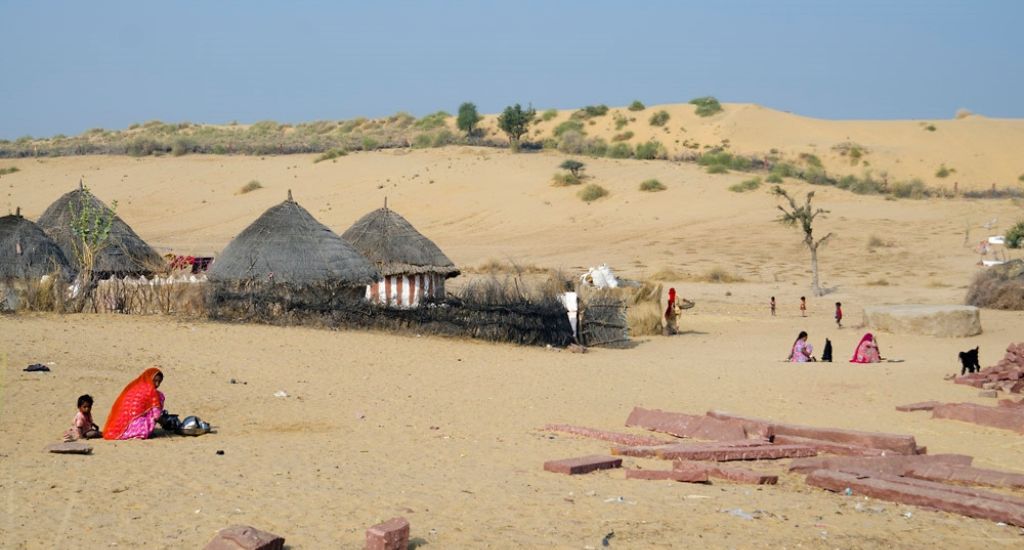
Earlier Khatoon and her family drank the water from the pond after filtering it with a cloth. But they frequently suffered health problems such as stomach ache, indigestion, constipation, vomiting and diarrhoea.
However, the scenario changed for the better after Khatoon’s family got a bio sand water filter (BSWF) in 2022. Since then they have observed a steady decrease in the occurrence of stomach-related ailments and infections. Khatoon strongly believes that people would lead a much healthier and happier life if they have BSWF installed at home to get purified water.
Also Read: Garden in Thar desert stays green despite climate crisis
This isn’t the plight of Bohranada village alone. The quality of drinking water has continued to be a major public health and developmental challenge in many parts of the world, especially for people in rural areas.
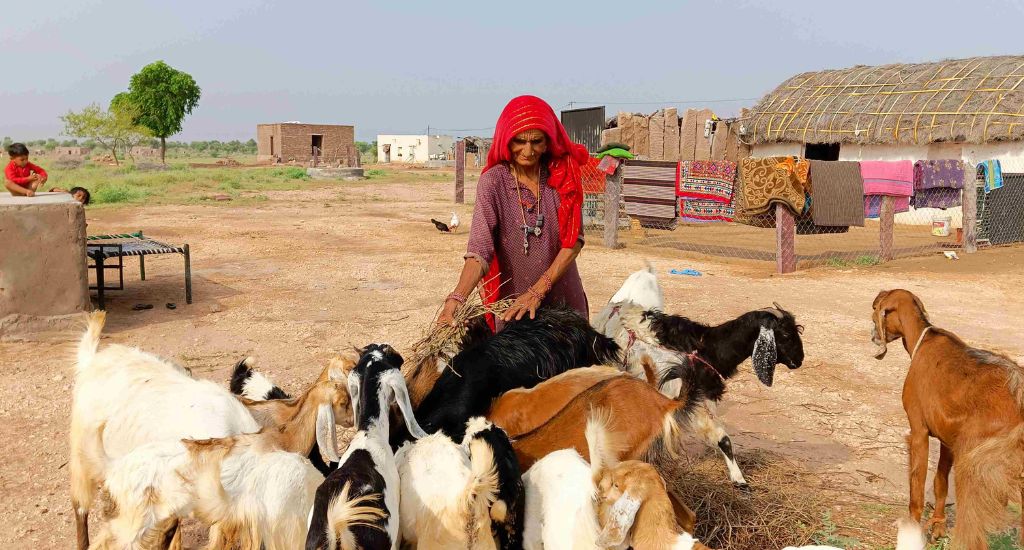
In regions experiencing frequent droughts over a long period of time, the communities are forced to use unsafe and contaminated water, causing a number of health issues that in turn lead to poor socioeconomic development.
Groundwater is utilised intensively for irrigation and industrial purposes in India, which are among the many human activities causing contamination of water. Millions of people have to drink water with high rates of fluorides, which can cause fluorosis – a serious health condition that adversely affects teeth and bones.
The excessive use of chemical fertilisers by farmers as well as the careless disposal of human and animal waste on land leads to high nitrate levels in the groundwater. Arsenic is another common chemical pollutant found in groundwater.
Increased levels of total dissolved solids (TDS) and iron are also of great concern, and may cause issues like dermatitis, eczema, brittle nails and rough hair.
Biological contamination of drinking water is also common in India. Microorganisms such as bacteria, helminths and viruses contaminate water, particularly surface water, in reservoirs. It is significantly responsible for communicable, waterborne diseases and is the leading cause for diarrhoeal morbidity and mortality, especially among children and women.
Also Read: Khejri – the wonder tree of Thar desert
The quality of water remains an issue even in areas where it is available, either as groundwater or harvested rainwater. To tackle this, Gramin Vikas Vigyan Samiti (GRAVIS) has been experimenting the use of bio sand water filters in resource scarce and drought-prone regions like the Thar desert in India, in addition to addressing the overall water and sanitation situation.
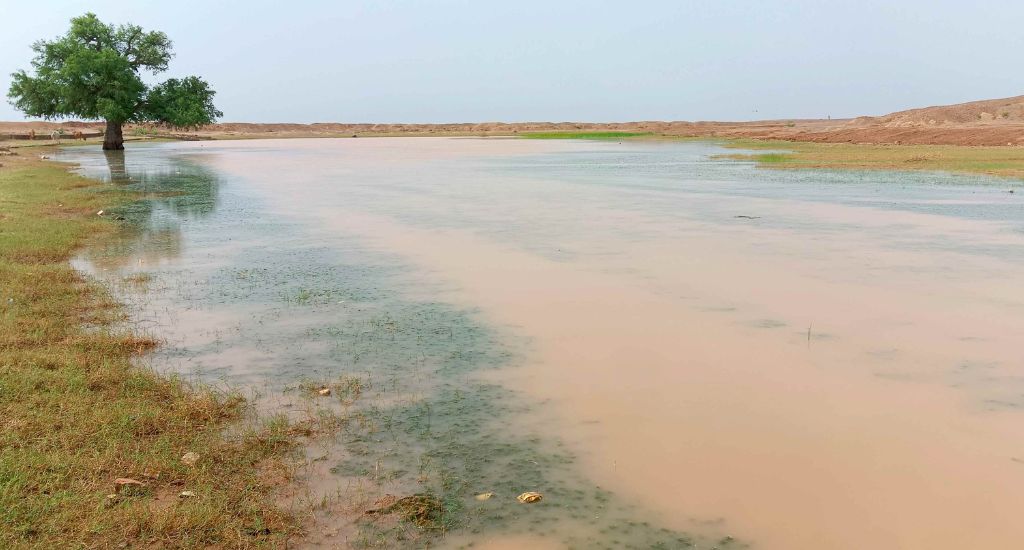
The BSWF is a low-cost technology and an innovative improvement on the traditional slow sand water filters which have been used for community water treatment for a long time. BSWF is specifically designed for intermittent or household use. Made of locally available materials, it consists of a simple container with a lid, containing layers of sand and gravel that trap sediments, pathogens and other impurities.
A biofilm, which forms as a shallow layer of water, sits atop the column of sand and contributes to the elimination of contaminants. Water is simply poured into the filter from the top and collected in a storage container. Pathogens and turbidity are removed by physical and biological processes in the filter sand.
BSWFs have more advantages than the other methods of water purification. They do not require electricity to function, the technology is simple to understand and maintenance is easy. Unlike the practice of boiling water to purify it, these filters are cost effective since they don’t require fuel. Other problems, like the odour left behind if chlorine tablets are used, are also absent.
GRAVIS also constructs rainwater harvesting tanks, percolation wells, village ponds and low-cost toilets, and introduces methods to keep the water clean in storage structures. Most of the communities that the organisation works with are dependent on rainwater for domestic needs.
Also Read: Women artisans of Thar Desert overcome adversity through embroidery
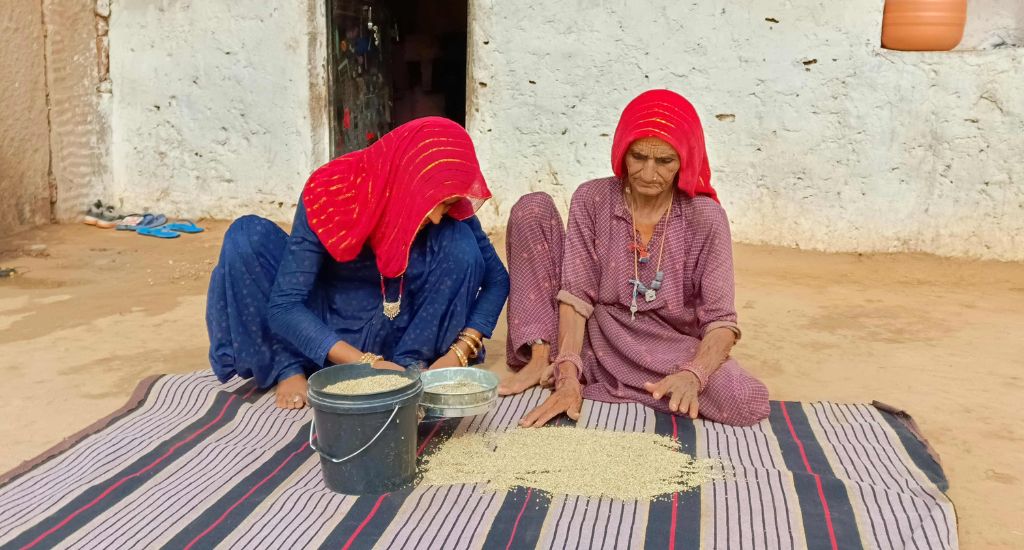
BSWF is more effective in purifying rainwater than groundwater. Rainwater can be effectively purified through filters whereas chemical contamination from groundwater is difficult for the BSWFs to remove.
GRAVIS has installed several BSWFs in rural areas, providing clean drinking water to users. The filters have received tremendous response from the communities of Thar desert, and the immediate impact has been positive.
This water treatment technology which is most effective with fresh water can be replicated in water scarce regions including urban slums where people often consume unsafe drinking water.
The lead photo at the top shows Ajmat Khatoon using the bio sand water filter near her house at Bohranada village in Baap tehsil of Jodhpur district in Rajasthan. (Photo by Deepak Sonker and Bhuraram Panwar, GRAVIS field team)
Krupa Gandhi is a communications professional currently working with GRAVIS as a consultant.